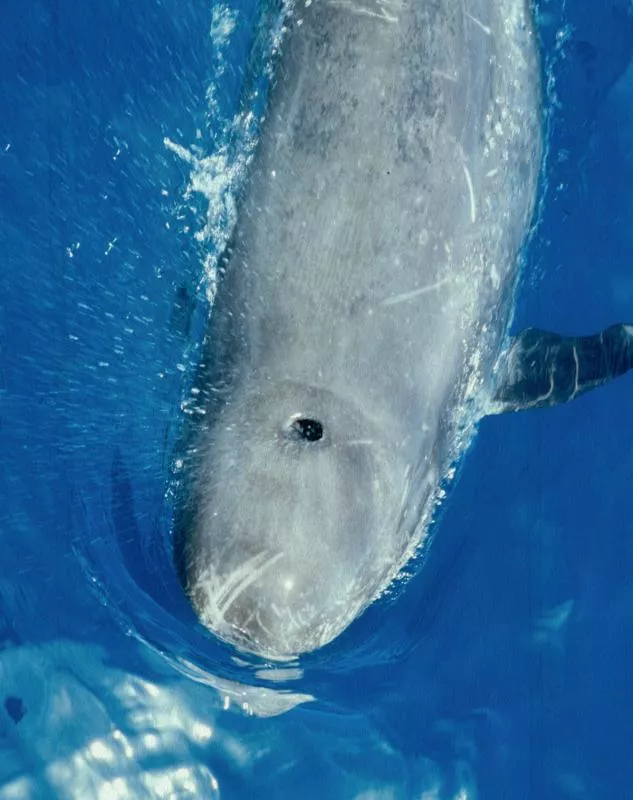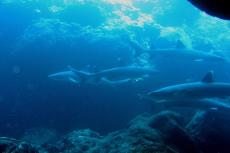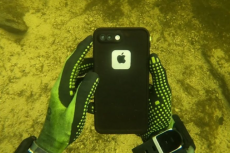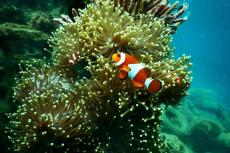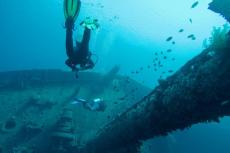Dolphins decompress too
Even marine mammals ascending from the deep must rid themselves of the gas that has built up in their tissues, or risk developing the bends. Dolphins avoid the bends by taking long, shallow decompression dives after feeding at depth.
Scientists have found tiny bubbles beneath the blubber of dolphins that have beached themselves. bubbles were discovered by taking ultrasound scans of the animals within minutes of stranding off Cape Cod, US.
It has been a widespread belief that marine mammals do not struggle, as human divers do, with decompression sickness - "the bends" - when ascending from great depths.
However, veterinary scientist Michael Moore from Woods Hole Oceanographic Institute in the US, thinks that it is "naive" to think that diving mammals do not also struggle with these laws of chemistry.
If dolphins, he explained to BBC, come up too quickly then there is evidence that they "grab another gulp of air and go back down again," in much the same way a human diver would perform a so-called 'delayed decompression'
When he and his team scanned eight Atlantic white-sided dolphins and 14 short-beaked common stranded dolphins using ultrasound, they were not surprised to find tiny bubbles below the blubber of the animals.
Because three of the dolphins were scanned within minutes of their stranding, the team ruled out the possibility that the air pockets were a result of beaching, and instead think that they formed while the animals were still in the water.
- Log in to post comments


